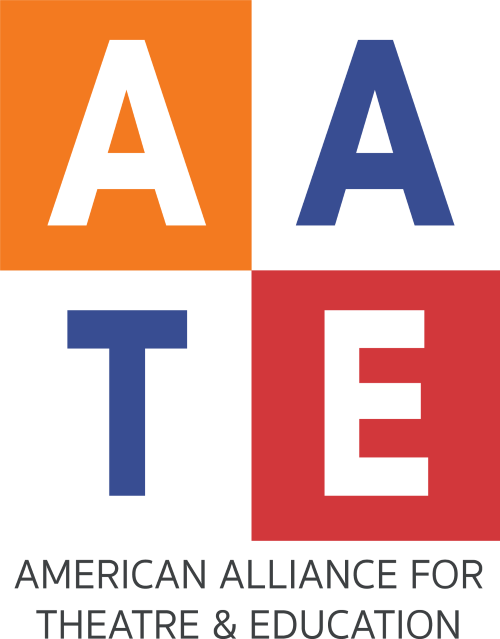- Home
- About AATE
- Membership
- Programs and Events
- Resources
- Networking
- Support AATE
- Online Store
- Contact Us
Session Block 3Saturday, July 13th, 3-4:15pm (EDT)
All of the Session Blocks will be hosted on Zoom Meeting. You will be sent an email, 24 hours prior to the next day's events, which will contain all of the log-on details for each event. As in an in-person Conference, please feel free to select whichever workshop you would like to attend in the moment. Network: K-8 Teaching with Shadows: Shadow Puppetry Across the Curriculum Session Chair: Alicia Fuss Discover the power of shadow puppetry as an expressive educational tool. In Spring 2024, Inglewood Elementary hosted a shadow-puppet residency for its 4th grade students. This residency was conducted in partnership between a theatre teaching artist and two related arts teachers at the school: visual arts and environmental science. The students created short shadow puppet performances about animal conservation. Following this curricular sequence as an example, participants will explore shadow’s interdisciplinary potential as well as some practical tips for teaching shadow puppetry on a budget. Activities and discussion will center on the ways shadow puppetry can serve as a learning tool in a variety of arts-integration scenarios.
Network: High School Adopting Chicago Theatre Standards in the Korean Classroom Session Chair: Jirye Lee It is refreshing to witness a positive shift in the theatre-making landscape, where an increasing number of scenes now incorporate the role of an on-set intimacy coordinator as a crucial element in the production process. While this signifies progress, the reality is that having an intimacy coordinator in every classroom or rehearsal space remains a challenge. Ironically, during these post-COVID times when everyone is navigating the nuances of being physically present with others, the need for professional guidance becomes even more evident.In instances where it is not feasible to hire or invite a trained intimacy coordinator for every setting, a viable alternative is to empower ourselves and our learners by becoming familiar with the principles of intimacy coordination. In this context, the Chicago Theatre Standards (CTS) emerges as a valuable resource, offering insights and guidance to navigate these sensitive aspects of theatrical production. Developed in 2015 by Lori Myers and Laura Fisher in collaboration with a group of Chicago theater professionals, CTS provides practical, step-by-step guidelines and advice for self-regulation. It aims to cultivate communication, safety, respect, and accountability among all individuals involved at various stages of theatrical production. While its positive influence is evident, serving a wide range of theatre makers in many countries, it is inevitable that the detailed contents of the guidelines need to be altered, modified, and, most importantly, locally tailored to reflect the specific context and community in which they are being used. In my presentation, I introduce CTS and its adaptation for the Korean theatre industry and theatre classrooms, known as KTS. Through an exploration of these materials as comparative case studies, I provide an opportunity for a conversation on how we can construct safer and more equitable classroom environments that value diversity and inclusivity, considering the unique contexts and standpoints of each participant. Network: Early Childhood TVY: Inspiring Joy and Play in Learning Session Chair: Gillian McNally This session will share the research findings of a study exploring the question, how do early childhood education (ECE) teachers utilize TVY (Theatre for the Very Young) to inspire play and joy within the classroom? Students from the University of Northern Colorado will perform All Smiles, a TVY piece focused on social-emotional learning, in the spring of 2024. Based on this production, TYA and ECE educators will use a mixed-methods study including pre and post-show surveys to investigate our guiding question. |
